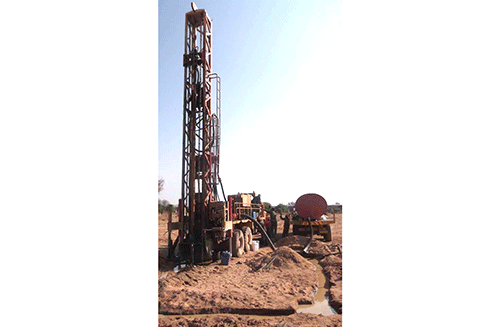OMARURU – Omaruru in the Erongo region has faced drastically-reduced water pressure since last year, posing a potential water crisis by October this year.
Omaruru prides itself on having its own water facilities, pipes and systems, ensuring independence from external water sources.
Despite scepticism from residents, the town boasts the lowest water tariffs on record, pending approval from the line ministry.
Currently, the town relies on the Omaruru River with 12 boreholes, eight of which are operational and four decommissioned.
Despite these efforts, water levels have dwindled due to insufficient rainfall, necessitating the installation of two more boreholes.
In a recent interview with Nampa, Bobby Griebel, a resident and business owner at the town, has raised serious concerns regarding water security, questioning the adequacy of current water management practices.
Griebel emphasised the importance of regular monitoring, suggesting a monthly practice of dropping a line into the borehole to measure water levels, while requesting council present tangible evidence of water level measurements to residents.
The town’s mayor, Vincent Kahua, revealed to Nampa that maintaining and upgrading the water infrastructure presents significant challenges.
He emphasised the urgent need to replace old pipes to prevent leaks and ensure consistent water pressure.
“The town’s water system, originally designed for a population of around 4 000, now serves approximately 10 000 residents, according to the latest census statistics. This surge necessitates system upgrades to increase water capacity and pressure”.
He said the town council has allocated funds in the new financial budget, effective from July 2024 to June 2025, to install two additional boreholes.
Another challenge faced by the council involves billing and accountability.
Many residents have also historically avoided paying for water and electricity due to improper records.
“The council has taken steps to rectify this, including writing off old debts and improving record-keeping to ensure residents are accountable for their utility usage.”
The mayor said big projects, including a proposed steel factory by potential investors, will further complicate the town’s water management.
“This factory promises to alleviate unemployment but requires substantial water supply. Council plans to collaborate with investors to ensure they establish their boreholes, thereby boosting overall water capacity,” he added. -Nampa



